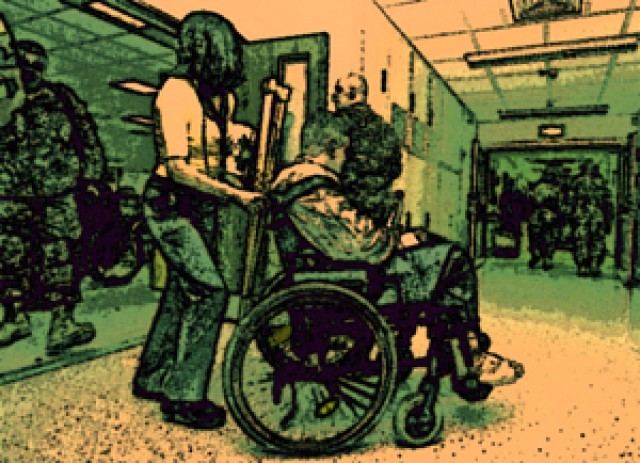HEIDELBERG, Germany -- Three years ago Landstuhl Regional Medical Center developed the Combat and Operational Stress Reaction Staff Resiliency (COSR/SR) program to address the trauma and loss of empathy health care providers face as a result of combat and operational stress. The Army's new Provider Resilience Training program is designed to further that care.
"(Combat and operational stress) is part of the spectrum of emotional and spiritual and psychosocial reactions that come to people in the aftermath of some sort of a trauma," said Chaplain (Col.) James R. Griffith, chief of LRMC's clinical pastoral division. LRMC's health care providers sometimes experience the secondary trauma of treating those patients because they identify with them very closely, he said.
"When you're in an intensive care unit or a burn ward, and you're caring for a young Soldier who was wounded 'downrange,' you look at him and think, 'That could be my son on the table,' Griffith said. "The combat (and) operational stress part is that there may be a little bit of avoidance, where they've had enough and they need a break before they go into another ICU room."
PRT is designed to assist military health care providers who may be experiencing provider fatigue to "recharge."
"A provider who can operate effectively is less prone to errors," said David Douglas, program manager for European Regional Medical Command's PRT program.
Douglas explained that the PRT program came about as a result of studies of Walter Reed Army Medical Center, where provider fatigue was one of 96 items the Army identified for assessment. As a result, Maj. Gen. Gale S. Pollock, acting surgeon general of the Army and commanding general of the U.S. Army Medical Command at the time, mandated in May 2006 that all Army medical commands assess the level of secondary trauma among their providers, and provide training to increase resiliency against provider fatigue.
ERMC began implementing the PRT assessment stage in August, and will continue through the end of the year. Care providers take the online assessment, which provides them with information on their levels of fatigue, and offer resources to help them deal with it, said Douglas. Those resources include speaking with a chaplain or counselor, taking leave, or temporarily shifting to a non-intensive duty position.
Douglas said that assessment shows 60 to 75 percent of ERMC's health care providers report high job satisfaction, while there are indicators of some form of fatigue among 20 to 25 percent.
According to reports from the U.S. European Command's quality of life conference earlier this year, EUCOM has been developing strategies for combat and operational stress since the subject was first discussed at the command's 2007 Deployment and Community Counseling Support Conference. During the QOL conference EUCOM leaders made a commitment to create a theater-level joint working group to design the implementation of a permanent combat and operational stress program.
As part of that commitment, EUCOM conducted a "beta test" in September. Based on the success of that test, EUCOM has targeted funding to help craft a program that could ultimately be implemented DoD-wide.
In a November interview, Dr. Anita Brown, clinical psychologist and then program director for LRMC's COSR/SR program, said LRMC officials are looking forward to building on the program for the welfare of LRMC's providers and patients.
Brown said it's normal for health care providers who work routinely with medical issues and trauma to experience some form of fatigue.
"If you think you're invulnerable, you're naive at best, and negligent at worst," she said.
"This is not simply a 'check the box' kind of training. It was developed to care for the provider individually, and that's what we hope to do," Douglas said.
PRT assessment tools can be found on Army Knowledge Online and also at www.behavioralhealth.army.mil.


Social Sharing